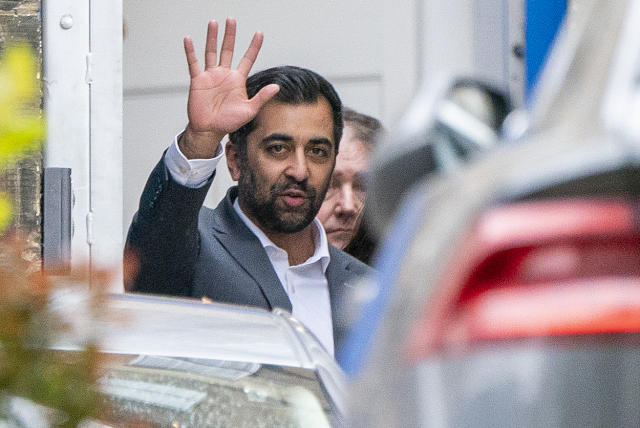Scottish First Minister Humza Yousaf has stepped down from his position just a year into his tenure, following the collapse of his coalition government. The abrupt departure has thrown Scotland’s ruling pro-independence party into disarray.
Yousaf’s coalition government fell apart unexpectedly last week after he scrapped a coalition agreement with Green Party lawmakers due to a dispute over climate policy. However, this move backfired when the Greens announced they would vote against him in a confidence motion.
Speaking at a news conference on Monday, Yousaf announced that the SNP would hold a leadership election to replace him. He acknowledged underestimating the impact of ending the coalition agreement and emphasized the importance of trust in minority governments.
The SNP has led Scotland’s devolved government since 2007 and pushed for an independence vote in 2014, which resulted in Scotland remaining part of the United Kingdom. Yousaf has advocated for another independence referendum, citing the UK’s departure from the EU, which Scotland voted against.
However, his leadership has been challenged by legal issues and a police investigation into SNP finances, leading to a decline in public support. With the SNP two seats short of a majority in Holyrood, any new leader will need to gain support from opposition parties to govern effectively.
Yousaf’s tenure as First Minister has been marked by controversy, including clashes over hate crime legislation and climate targets. His decision to drop key 2030 climate targets led to the collapse of his government after the Greens withdrew their support.
Despite his efforts, Scotland’s ambitious climate goals have been derailed, and Yousaf admitted that they were beyond the government’s reach. His resignation marks the end of a tumultuous period for the SNP and raises questions about the party’s future direction.















































